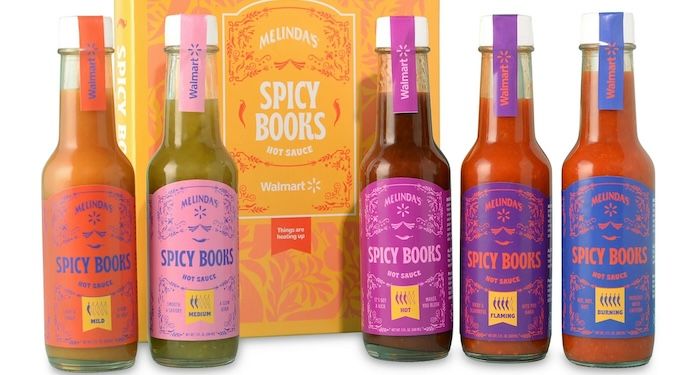
This content contains affiliate links. When you buy through these links, we may earn an affiliate commission.
Welcome to Today in Books, our daily round-up of literary headlines at the intersection of politics, culture, media, and more.
What We Talk About When We Talk About Spicy Books
Ask a hundred people what it means for a book to be spicy, and you’ll probably get a hundred different definitions. The concept of spicy books carries a “you know it when you see it” vibe, but people’s individual reading preferences are so personal, specific, and varied that it’s not actually helpful. When “spicy” can mean anything, it comes to mean nothing. I’ve been hoping a romance expert would address the increasing uselessness of spicy discourse, and the folks at Shelf Love have more than delivered with a look at the ways in which it flattens conversation, fails readers, and misrepresents the romance genre. I’m not sure what the solution is, since spicy is just one of the many euphemisms born of trying to evade algorithmic censorship, but I’m glad to see us talking about the problem.
Thanks, Obama.
If your TBR is looking lighter than usual going into fall, it’s probably because of the widely held belief that election years are bad for books. It makes intuitive sense—it’s certainly hard enough to get press coverage and consumers’ attention when you’re not competing with wall-to-wall politics—but like so many things that feel true, it’s not actually born out by data. As Circana’s Brenna Connor told The Washington Post, “Sales during election years don’t show major declines.”
In 2016 and 2012, sales dropped by 1 percent compared with the prior year; in 2008, they grew by 7 percent. In 2020, sales hit a 15-year high — in part because adults had more time to read, and bought more educational materials and children’s books as a result of school closures.
Since 2020 was an outlier, Connor looked at data from the previous presidential election, in 2016, and found that there were fewer new books that November compared with the previous year: New ISBNs, the unique tags used to identify books, fell by 8 percent.
If you’re scratching your head about how publishing fewer new books doesn’t cause a proportional dip in sales, remember: the vast majority of books sold in any given year are backlist titles. Simon & Schuster’s Jonathan Karp seems to have this one right: “The idea that books shouldn’t come out during the fall of a presidential election is ‘somewhere between being an old wives’ tale and a canard.’”
Tune In, Turn On
I’ll be honest with you, I’m just sharing this look at the literary film and TV of September so I can have an excuse to once again recommend Slow Horses. Gary Oldman is having the time of his life. Kristin Scott Thomas is formidable and funny, and her supply of excellent skirts seemingly knows no bounds. Season 4 starts tomorrow, and if you haven’t seen the first three seasons, well, no time like the present.
The Best New Books of September
Whatever your flavor, there’s something for you in this collection of the best new books of September.
The “It Books” of the Week
We’re bringing this feature back now that the summer dry spell is over. Every Tuesday, we’ll highlight two “it book” new releases, one fiction and nonfiction pick. Subscribe to Book Riot All Access to view this and all premium content.
Read the original article here

